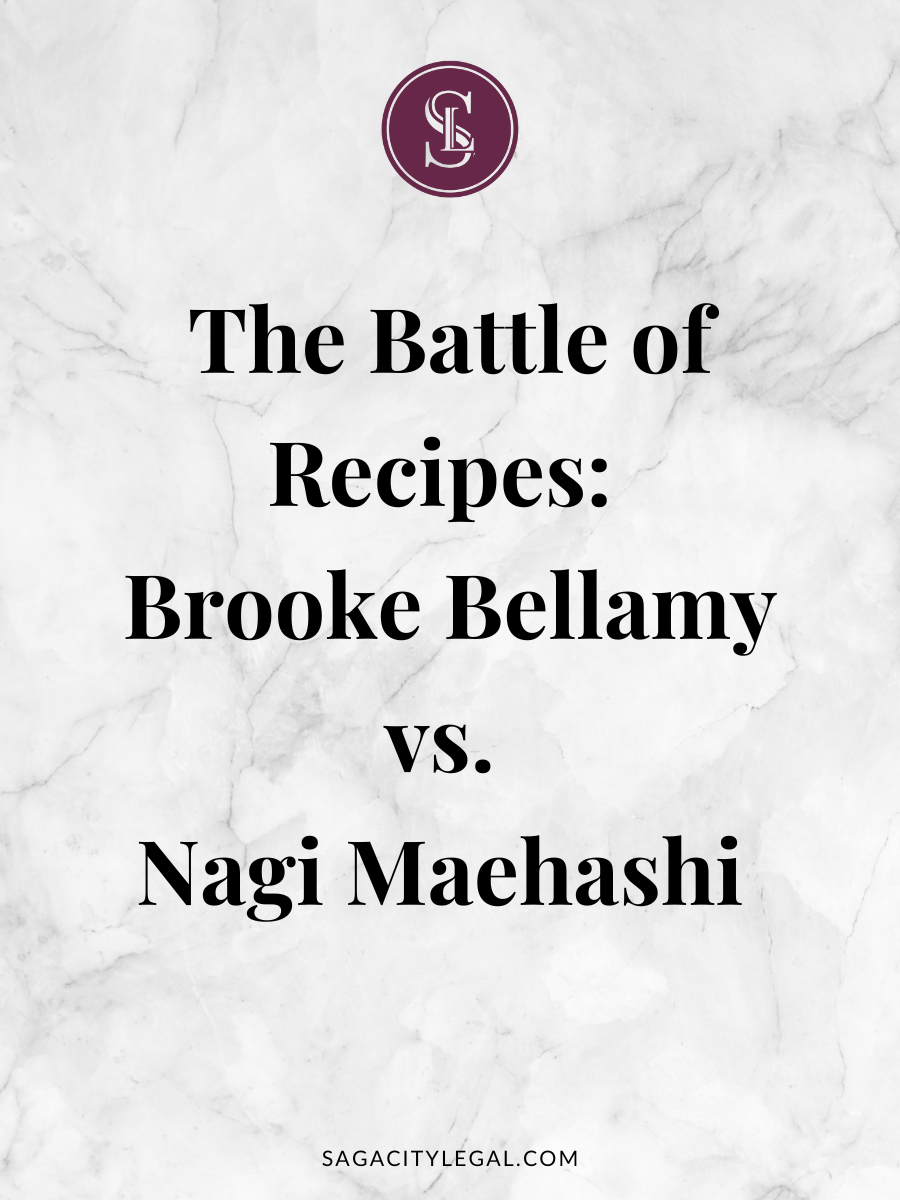Written by Naiya Chung, Sagacity Legal 2025 Intern
Let’s talk copyrights.
In the age of viral food trends, TikTok-famous bakers, YouTube chefs, and best-selling cookbooks, it is now easier than ever for a fantastic recipe to not only get attention but be copied, borrowed, and flat-out stolen on social media.
This raises an important question for aspiring cooks and content creators:
Is the copying of a recipe an unethical cooking crime, or does this constitute copyright infringement as a matter of law?
The short answer? It depends.
Copyright and Limitations
Legally, a person cannot copyright an idea, procedure, process, system, method of operation, concept, principle, or discovery. A creative work must be original and in a fixed, tangible medium of expression. Under Copyright law, a recipe is typically considered to be a fact or functional work. This makes it uncopyrightable and not legally protected, especially when it is just a mere listing of the ingredients.
For example, a list of ingredients like “3 cups of flour, 2 tsp of salt, and 6 eggs” is not protected because it is missing the required creative expression.
So, What Can be Protected by Copyright?
Although the ingredients and directions cannot be protected, the way you represent a recipe can be.
If a recipe includes original narrative elements surrounding the ingredients and steps, like headnotes and personal stories, descriptive writing, unique presentation, and original styling, then this is considered to be creative expression, and it most likely can be copyrighted.
In other words, it is not the cake, it is the story about the cake that may be copyrightable.
Real World Example: Brooke Bellamy and Nagi Maehashi
A real-world example has stirred the food community recently between Brooke Bellamy, a TikTok bake-star, and Nagi Maehashi, a food blogger/cookbook author. Nagi Maehashi accused Brooke Bellamy of copying two of her recipes in Brooke’s popular cookbook. Nagi Maehashi claims that Brooke’s recipe was too specific and analogous to hers for it to be dismissed as chance. Brooke Bellamy argues that she did not copy the recipe from Nagi Maehashi. Both of them are from Australia, but if this were interpreted under U.S. Copyright law, does Nagi Maehashi have a legal claim?
The Copyright Answer
The issue is not whose cake tastes better, but whether Brooke Bellamy copied expressive original elements from Nagi Maehashi’s original recipe presentations, such as her language, formatting, storytelling, and/or step-by-step unique style.
If Nagi Maehashi were to sue, she would have to show that she owns a valid copyright in the expressive content of the recipes and that Brooke Bellamy copied her protected work in a substantially similar way.
What This Means for You
If you are a cook, baker, food blogger, or aspiring to write a cookbook, here is what is important:
You cannot copyright the ingredients, directions, or basic techniques in a recipe, but you can protect the way you present your recipes through vivid descriptions, photographs, designs, original commentary, and methods like storytelling. Therefore, it is not about what you make, but legally it is about how you share your recipes through presentation and your own unique creative style.
Final Thoughts
Recipes are a part of society, and they have been around for a long time because they are meant to be shared and enjoyed! However, this does not mean you have no legal protection! Create a recipe with your narrative voice, personal design style, and unique pictures, and this is where the true copyright protection lies.
So, express yourself confidently, create food with passion, and protect the part of your work that makes it YOURS.
Last, in the battle between Brooke Bellamy and Nagi Maehashi, is this an example of fairly recreating and baking the same food since Brooke claims she did not take from Nagi, or is this a direct infringement on Nagi Maehashi’s work and personal style?
Want to chat more about copyrights? Reach out at meetwithrandi.com or via our contact page.


leave a comment on this post.